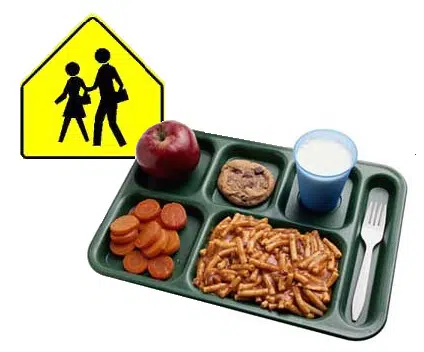
Mike Licht / CC
ST. PAUL, Minn. (KELO.com) — Transportation and learning supplies are among the things to which all K-through-12 students can have access.
In Minnesota, there’s a push to add no-cost breakfast and lunch to the list.
A coalition of eighteen groups wants state lawmakers to pass legislation to provide universal free meals for students, no matter their family’s income.
Leah Gardner, Policy Director for Hunger Solutions Minnesota, said the pandemic has left one in six children in the state facing food insecurity, and one-in-four doesn’t qualify for free or reduced-price lunches.
A temporary spike in federal aid allowed for expanded access, but Gardner argued the state needs to make it permanent.
“Schools and families will experience hardship if we end up going backward, to what we think is a broken model,” Gardner asserted.
She pointed to rising lunch debts, creating situations where students can’t eat because they’re running a balance.
Generally, opponents question providing these resources to kids from wealthier families.
Supporters of universal free meals also back a separate bill to leverage federal resources to offer the free meals in qualifying districts, which gets a hearing on Thursday.
Backers said the separate measure is a good first step in helping students who lack nutritional options.
Heather Alden, a social worker for St. Paul Public Schools and a member of the Minnesota School Social Workers Association, feels the overall approach has gained more acceptance in the past year.
“Where some people may have felt like, ‘This isn’t my story, this is for someone else’s story,’ it has become more everyone’s story,” Alden explained.
She added providing food to all students helps ensure they’re better able to learn, no matter whether they can afford school meals.
The bill for universal meals for all Minnesota students would require the state to provide more than $150 million dollars in funding each year, when combined with federal aid.
(Mike Moen, MNC, contributed this report.)




